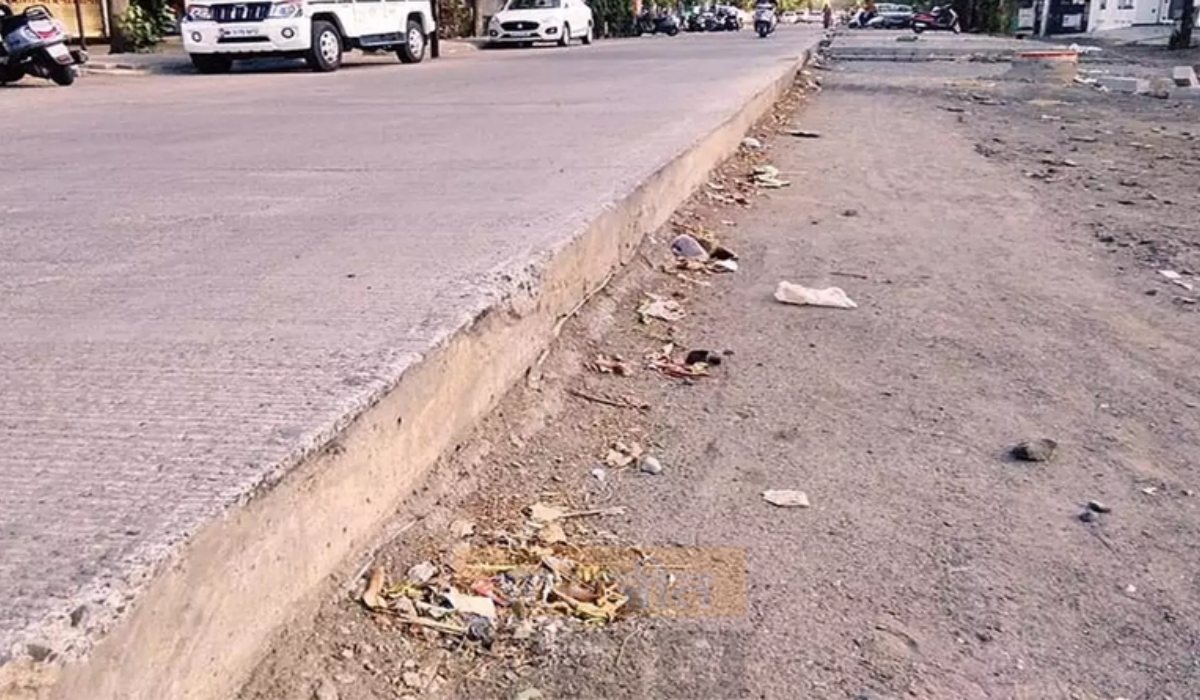Nagpur’s motorists, especially two-wheeler riders, face significant risks due to poorly maintained interlocking (I) blocks alongside newly constructed cement roads. Despite spending approximately Rs 1,500 crores to convert tar roads into cement concrete, issues of uneven surfaces and gaps in I-blocks remain unresolved, causing accidents and public outrage.
Civic Failures and Motorist Woes
The conversion of tar roads into cement roads was intended to reduce long-term maintenance costs. Cement roads, projected to last over 50 years, were expected to eliminate frequent repairs. However, the partial concretization has created unforeseen challenges, particularly with I-blocks left for future utility installations.
Many of these I-blocks have sunk below road levels or developed wide gaps. These gaps, often concealed by waterlogging during the rainy season, pose severe risks to two-wheeler riders, with several accidents reported on major stretches like Ram Nagar, North Ambazari Road, VIP Road, Great Nag Road, and Inner Ring Road.
Also Read: छत्तीसगढ़: सुरक्षाबलों से मुठभेड़ में 10 नक्सली ढेर
High Court’s Critical Observations
In July 2024, the Bombay high court’s Nagpur bench, comprising Justices Nitin Sambre and Abhay Mantri, expressed grave concerns over the city’s road conditions. The court highlighted issues of poor alignment, waterlogging, and cracks in cement roads, attributing the problems to mismanagement and unplanned execution of road projects.
The bench directed the formation of an expert committee to address these issues comprehensively. However, civic agencies, including the Nagpur Municipal Corporation (NMC), Public Works Department (PWD), and National Highways Authority of India (NHAI), have shown little progress in implementing the court’s directives, risking contempt of court charges.
Expert Recommendations Ignored
Experts from the Visvesvaraya National Institute of Technology (VNIT) have recommended adopting a ‘Pavement Management System’ to ensure uniformity and proper maintenance of road surfaces. According to VNIT’s Professor Vishrut Landge, this system could effectively resolve recurring problems with uneven I-blocks.
“It is unfortunate that there is no willingness among officials to tackle the problem. The current state of cement roads is extremely disappointing and poses a significant risk of serious accidents,” Professor Landge remarked.
Public Outrage and Unfulfilled Promises
Residents and urban planners have repeatedly raised concerns about the dangerous road conditions. “We have complained several times, but no action has been taken. These roads are a disaster waiting to happen,” said Pravil Palkar, a resident of Narendra Nagar.
NMC Chief Engineer Leena Upadhaye assured that a survey to identify accident-prone areas caused by uneven I-blocks is underway and repairs will follow. However, citizens remain skeptical as no substantial progress has been observed.
Demand for Accountability
Citizens are demanding a comprehensive plan to address alignment issues, redesign I-block systems, and ensure regular maintenance. Experts emphasize the urgency of implementing quality checks to prevent further accidents.
Ignoring the high court’s directives not only endangers public safety but also exposes civic authorities to legal repercussions. The lack of action highlights systemic failures in prioritizing the welfare of Nagpur’s residents.
As road conditions in Nagpur deteriorate, the safety of motorists hangs in the balance. With persistent gaps in I-blocks and rising public dissatisfaction, authorities must act swiftly to rectify the issues, implement expert recommendations, and fulfill their promises to the citizens.
Also Read: ट्रंप ने फ्लोरिडा की पूर्व अटॉर्नी जनरल पाम बॉन्डी को अटॉर्नी जनरल नियुक्त किया

